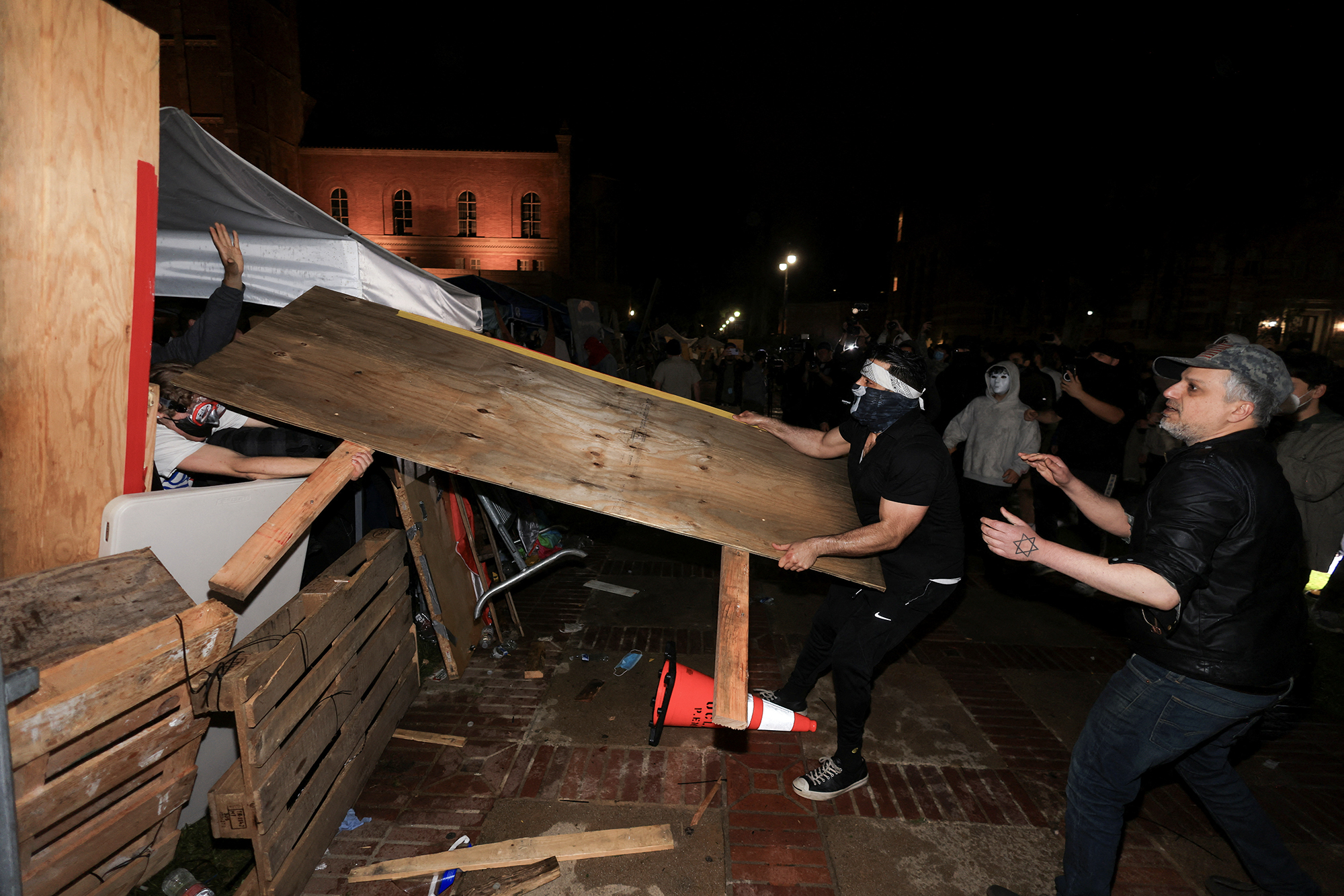The student encampments to protest the Gaza war started April 17 at Columbia University, where Tuesday night New York City police stormed an occupied building and arrested more than 100 pro-Palestinian protesters.
The movement quickly spread to California campuses. At the University of Southern California, Los Angeles police arrested nearly 100 protestors last week and the university canceled its main commencement ceremony. The protest prompted California U.S. Senate hopeful Steve Garvey to say that “demonstrations that allow people to build encampments… is terrorism.”
After weeklong demonstrations at Cal Poly Humboldt led administrators to close the campus, 100 officers arrested at least 32 protestors Tuesday. Demonstrators occupied buildings, and were told by police that they “could face rubber bullets and chemical spray,” according to the Los Angeles Times, though no injuries were reported.
Then at UCLA, the university Tuesday night declared a “Palestine solidarity encampment” illegal. Soon after, violent clashes involving fireworks and pepper spray broke out between the pro-Palestinian demonstrators and pro-Israel counter-protesters. In the aftermath, 15 people were injured and all classes were canceled Wednesday.
Gov. Gavin Newsom deployed California Highway Patrol officers to the campus early Wednesday morning.
- Newsom, in a statement: “The law is clear: The right to free speech does not extend to inciting violence, vandalism, or lawlessness on campus. Those who engage in illegal behavior must be held accountable for their actions — including through criminal prosecution, suspension, or expulsion.”
Early today, police tore down the encampment, fired projectiles and arrested protesters. And President Biden addressed the campus protests this morning, saying from the White House that while peaceful protest is part of America’s tradition, violence, disruption of classes and commencements and hate speech are not.
Until the violence at UCLA, one reason why many University of California campuses were calmer is because of policing changes made after the George Floyd demonstrations in 2020, explains Atmika Iyer of CalMatters’ College Journalism Network.
To curb potential violence on campus, UC President Michael Drake released the UC Campus Safety Plan in 2021, which included guidelines to “minimize police presence at protests, follow de-escalation methods in the event of violence and seek non-urgent mutual aid first from UC campuses before calling outside law enforcement agencies.”
But haphazard adherence to these guidelines is partly the reason, writes Atmika, that law enforcement officials failed to take action and to stop the escalating violence at UCLA. And with protest encampments cropping up on at least five other UC campuses, the updated safety plan has come under scrutiny. Drake himself has ordered an independent review of UCLA’s “mutual aid response.”
Strong reactions to UCLA’s response have come from all sides of the issue.
The California Federation of Teachers and some lecturers called for UCLA Chancellor Gene Block to resign immediately for “his failure of leadership.” (He is set to retire July 31 and has been summoned to testify to Congress about campus antisemitism.)
Leaders of the Legislative Jewish Caucus said Wednesday they were “appalled” by what they called the “total failure” of UCLA’s leadership in protecting Jewish students. They also condemned the assaults on pro-Palestinian students.
- The statement: “The violent actions of a few agitators does not represent our community and is antithetical to our Jewish values.”
Meanwhile, legislative Republican leaders plan today to call for budget actions “to reduce funding to help restore order on state college and university campuses and hold school administrations accountable for doing nothing to protect student safety and ensure lawful conduct.”
Learn more about the campus protests in Atmika’s story.





